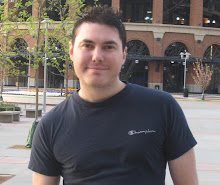On August 21, 1983, Philippine opposition figure Benigno “Ninoy” Aquino Jr was killed by a sniper at Manila International Airport as he attempted to re-enter the Philippines. As they viewed images of his lifeless body on the tarmac of an airport, a nation was reminded of the words of John 15:13: “Greater love hath no man than this, that a man lay down his life for his friends.” The next day, the large headline of the Manila Bulletin read: "Benigno shot dead". Shockwaves reverberated through out the nation. Demarcations had been set. The Marcos regime had sent an unmistakable and ruthless message: no opposition would be tolerated.
However, the seeds of People Power had been sown, and were gestating in a restless nation hungering for freedom. All that was needed was a leader, someone with credibility and courage, who would rally the people and lead the noble cause. From the comfort of a foreign land, the desolate widow of Ninoy Aquino found a calling.
The self proclaimed “plain housewife” would become the leader of a cause greater than herself, a cause that would change the history of her nation, make her Time Magazine’s Woman of the Year in 1986, and even lead to her nomination for the Nobel Prize. While the Czech Republic pays homage to Vaclav Havel, and Poland remembers Lech Walesa, the Philippines answers the reverential calls of these velvet revolutions with their own “People Power” movement, made possible and spearheaded by Corazon Aquino. The success of the revolution would eventually lead her to be elected as the 11th president of the Philippines.
Her presidency was not without deserved criticism. Deep seated corruption was difficult to erase. Many argued that she was a puppet of the advisors around her. Nevertheless, the nation had been purged of the martial law of the Marcos administration, and once again ordinary citizens could criticize their government with impunity.
Cory would later say that when she left the United States to return to Manila and bury her husband, she also felt that she was going to “lay to rest his restless dream of Philippine freedom.” However, she would go on to say of the millions of people who lead her husband’s body to his grave, “by that brave and selfless act of giving honor, a nation in shame recovered its own.” Her husband’s restless dream would see fulfillment, posthumously and primarily because of his own death. A nation yielded democracy from its pounding rage.
As she grew older, the accolades would become more vociferous and significant. In her appearance before a joint session of the United States Congress in September 1986, Cory delivered what has been described as the greatest speech ever given on the floor of that hallowed hall of human freedom. A 1994 book by Gail Meyer Rolka cited Cory as “one of 100 Women Who Shaped World History”. In August 1999, Time Magazine called her one of the 20 most influential Asians of the 20th century. In January 2008, Cory was selected as “one of the 15 Champions of World Democracy” by the Europe based organization “A Different View”, being mentioned alongside Abraham Lincoln and Martin Luther King Jr.
While former first lady Imelda Marcos enriched herself on the backs of her own people, Cory, on the day she handed over the presidency to her successor, left the inauguration ceremony in her own small car, rather than in the lavish transportation provided by the government. She wanted to show that once again, she was an ordinary citizen. And perhaps this is the greatest lesson of Cory. Like her husband, she saw herself as an ordinary citizen, who was called by extraordinary times to lead an eminent cause. Today, an ordinary citizen, a devout and great woman who trembled before God, rests in peace under an Asian Pacific sun, a tribute to her nation and a gift to the cause of human freedom.
Monday, August 3, 2009
Subscribe to:
Post Comments (Atom)

No comments:
Post a Comment